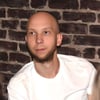We are delighted to announce the release of our new book “Software Architecture Metrics: Case Studies to Improve the Quality of Your Architecture”
In this book 10 leading hands-on practitioners, including our Co-founder and Software Architect Christian Ciceri, introduce key software architecture metrics that every software architect should know.
Christian Ciceri’s acknowledgement:
“I would like to say thank you to Ekaterina Novoseltseva and Apiumhub for giving me the chance to write this book, which was always in my dreams. Global Software Architecture Summit for meeting all these software architects, who push me forward and who generate interesting discussions. VYou app, for making me innovate and implement new software architecture metrics. And additional thanks goes to my cat, who is always there for me, supporting me in any situation.”
How did it all started?
During COVID period, we conducted a software architecture metrics survey and found that there is strong demand for software architecture metrics resources, yet very few are available. We hope this contribution will make a difference and help you set the right KPIs and measure the results accurately and insightfully.
As we were in contact with GSAS speakers and had a very good relationship, we decided to join forces and write a book, featuring our experience.
“We are grateful to the Global Software Architecture Summit, which reunited us and gave us the idea of writing a software architecture metrics book together. All of the book’s chapters and case studies are as different as the authors themselves: we made a point of using examples from different industries and challenges so that every reader can find a solution or an inspiration.”- book authors.
Meet the experts that participated in this book
- Christian Ciceri – Software Architect & Co-founder of Apiumhub
Christian Ciceri is a software architect and cofounder at Apiumhub, a software development company known for software architecture excellence. He is also head of software architecture at VYou, a customer identity and access management solution app, and head of moderators for the Global Software Architecture Summit. He began his professional career with a specific interest in object-oriented design issues, with deep studies in code-level and architectural-level design patterns and techniques. He is a former practitioner of Agile methodologies, particularly extreme programming, with experience in practices like TDD, continuous integration, build pipelines, and evolutionary design.
- Neal Ford – Author of the book “Building Evolutionary Architectures: Support Constant Change”
Neal Ford is director, software architect, and meme wrangler at Thoughtworks, a global IT consultancy with an exclusive focus on end-to-end software development and delivery. Before joining Thoughtworks, Neal was the chief technology officer at the DSW Group Ltd., a nationally recognized training and development firm.
Neal has a degree in computer science from Georgia State University, specializing in languages and compilers, and a minor in mathematics, specializing in statistical analysis. He is also the designer and developer of applications, instructional materials, magazine articles, and video presentations. In addition, he is the author of nine books and counting, not including contributions like this one. His primary consulting focus is the design and construction of large-scale enterprise applications. Neal is an internationally acclaimed speaker, having spoken at over 1,000 developer conferences worldwide over 15+ years.
- Rene Weiss – Software Architect, Consultant & CTO at FINABRO
Rene Weiss is a CTO at Finabro. He has been supporting Agile software development endeavors in a variety of settings and industries for more than 13 years, in roles that include software developer, software architect, project manager, Scrum Master, product owner, and head of software development. He is a trainer for software architecture seminars and coaches teams in various software architecture topics. When Rene is not working with clients, he writes and speaks about (evolutionary) software architectures and how to evolve architectures with fitness function. He is a speaker at many international conferences, including the O’Reilly Software Architecture Conference.
- João Rosa – Principal Consultant and Interim CTO
João Rosa is a software engineer at heart, currently working with Xebia, a global consultancy company based in the Netherlands. He is a principal consultant, focused on sociotechnical systems. As part of his consultancy practice, he acts as a strategic technology advisor to executives and senior managers, and takes on interim positions, such as CTO or CPTO. He loves to share knowledge and hosts the Software Crafts Podcast, where he interviews people from the software industry, starting with a heuristic or pattern. With his good friend Kenny Baas-Schwegler, he curated the book Visual Collaboration Tools, which collects field stories from practitioners around the world. Revenue from that book goes to initiatives in tech that promote inclusion and diversity. João is also a public speaker and trainer, and you can find more information on his website.
- Carola Lilienthal – Author of the book “Sustainable Software Architecture”
Dr. Carola Lilienthal is senior software architect and managing director at WPS (Workplace Solutions) and loves to design well-structured, long-lived software systems. Since 2003, she and her teams have been using domain-driven design (DDD) to achieve this goal. DDD and sustainable software architectures are the topics of her many conference talks, including at the O’Reilly Software Architecture Conference. She condensed her experience in her own book Sustainable Software Architecture (Rocky Nook, 2019) and in book Domain-Driven Design Distilled by Vaughn Vernon (Addison-Wesley, 2016), which she translated into German.
- Andrew Harmel-Law – Tech principal at Thoughtworks
Andrew Harmel-Law is a highly enthusiastic, self-starting, and responsible tech principal at Thoughtworks. Andrew specializes in Java/JVM technologies, Agile delivery, build tools and automation, and domain-driven design. He is experienced across the software development lifecycle and in many sectors, including government, banking, and ecommerce. What motivates him is the production of large-scale software solutions, fulfilling complex client requirements. He understands that people, tooling, architecture, and process all have key roles to play in achieving this. Andrew enjoys sharing his experience as much as possible. This sharing is not only seen in his formal consulting engagements but also informally through mentoring, blog posts, conferences (speaking and organizing), and open sourcing his code.
- Eoin Woods – CTO at Endava
Eoin Woods is CTO at Endava, where he guides technical strategy, oversees capability development, and directs investment in emerging technologies. Eoin is a widely published author in both the research and industrial communities and coauthor of the books Software Systems Architecture (Addison-Wesley, 2011) and Continuous Architecture in Practice (Addison-Wesley, 2021). In 2018, the Software Engineering Institute at Carnegie Mellon University honored him with the Linda Northrup Award for Software Architecture. He is a regular conference speaker and an active member of the London software engineering community. His main technical interests are software architecture, DevOps, software security, and software energy efficiency.
- Alexander von Zitzewitz – Co-founder of hello2morrow
Alexander von Zitzewitz is cofounder and director of hello2morrow, the company behind Sonargraph, a powerful static code analyzer. He is also a well-known conference speaker, trainer, and consultant focusing on software architecture and software metrics. Alexander has been writing software or managing development teams since the 1980s. He believes that following a few rules regarding architecture and metrics can dramatically improve the outcome of any software project. Recently he developed some new software metrics that are meant to detect structural software decay in early stages. He moved from Germany to the US in 2008. His hobbies include hiking, strategy games, and jazz music. Alexander has a degree in computer science from Technische Universität, Munich, Germany.
- Michael Keeling – Author of the Book “Design It!: From Programmer to Software Architect”
Michael Keeling is a software engineer at Kiavi and the author of Design It! From Programmer to Software Architect. Prior to Kiavi, he worked at IBM on the Watson Discovery Service and has experience with a variety of software systems, including service-oriented architectures, enterprise search systems, and even combat systems. Michael is an award-winning speaker and regularly participates in the architecture and Agile communities. He holds a master’s in software engineering from Carnegie Mellon University and a BS in computer science from the College of William and Mary. His current research interests include software design methods, patterns, and human factors of software engineering.
- Dave Farley – Co-author of the Jolt-award winning book Continuous Delivery
Dave Farley is a pioneer of continuous delivery and thought leader and expert practitioner in CD, DevOps, TDD, and software development in general. He has been a programmer, software engineer, systems architect, and leader of successful teams for many years during the early days of modern computing, taking those fundamental principles of how computers and software work and shaping ground-breaking, innovative approaches that have changed how we approach modern software development. Dave has challenged conventional thinking and led teams to build world-class software.
Dave is coauthor of the Jolt-award winning book Continuous Delivery, is a popular conference speaker, and runs a successful, growing YouTube channel on the topic of software engineering. Dave built one of the world’s fastest financial exchanges, is a pioneer of BDD, the author of the new best seller Modern Software Engineering (Addison-Wesley, 2021) and coauthor of The Reactive Manifesto, and a winner of the Duke’s Choice Award for open source software with the LMAX Disruptor.
The architects in this group have all published renowned software architecture articles and books, regularly participate in international events, and give practical workshops.
Through contributions from these 10 prominent practitioners, this book shares key software architecture metrics to help you set the right KPIs and measure the results.
This book is not about theory; it’s about practice and implementation, about what has already been tried and has worked, with valuable experiences and case studies. The focus is not only on improving the quality of architecture but on associating objective metrics with business outcomes in ways that account for your own situation and the trade-offs involved.
Who is this book for? This book is written by and for software architects. If you’re eager to explore successful case studies and learn more about decision and measurement effectiveness, whether you work in-house for a software development company or as an independent consultant, this book is for you.
By the end of this book you’ll understand how to measure software architecture goals, how to guide your architecture toward testability and deployability, how to prioritize software architecture work, how to create predictability from observability, how to identify key KPIs for your software project, how to build and automate a metrics dashboard, how to analyze and measure the success of your project or process and how to build goal-driven software architecture.
Having the right software architecture metrics and tools can make architecture checking much faster and less costly. It can allow you to run checks throughout the life of a software project, starting right at the beginning. Metrics also help you evaluate your software architecture at each sprint to make sure it’s not drifting toward becoming impossible to maintain. They can also help you compare architectures to pick the one that best fits your project’s requirements.
Want to explore success stories and learn more about the effectiveness of software architecture decisions and measurements? Get our book on Amazon
It was an absolute pleasure to work with O’Reilly editors and software architects of this level, most of them are coming to Global Software Architecture Summit this year.
Don’t miss GSAS (Global Software Architecture Summit) taking place October 3-4 at the Barcelona International Convention Centre (CCIB). This 2-day summit features a number of O’Reilly experts who have co-authored our book.









Top comments (0)